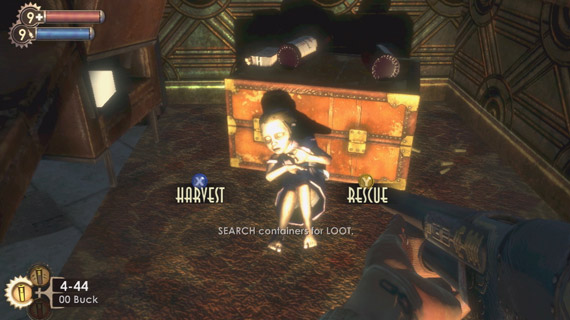Dying to Win - Death as a Gameplay Mechanic

If you’ve been playing games for any period of time, you’ve likely died a lot. You’ve thrown yourself against the video game meat grinder and come out the other side. There are games almost built around the idea of death as a crucial part of the game and players treat their completion like a badge of honor. Dark Souls: Prepare to Die, Rogue Legacy, and so many more take death and turn it from an inconvenience into a mechanic. But on the other side you have games like Super Meat Boy or Bioshock, which do their best to make death as little of an inconvenience as possible, and making it a fun part of the game.
Politics of Play - Games with an Agenda
Video games can be a powerful tool. They are unique in media in that they allow you to directly interact with the text in a way quite unlike anything else. And as time goes on, we are seeing games being leveraged in entirely different ways than we might have imagined when we first got our hands on the text adventures of the 1980’s. Instead of trying to make a game “fun”, creators are making games with messages. By allowing players to interact with the work in a meaningful way, the message carries so much more impact. Read More…
Do the Right Thing

Moral choices have long been a part of gaming. They offer the chance for a player to leave their mark on a game, affecting the outcome and changing the course of a game. These binary, good vs. evil choices are so often structured in the same way. Evil choices are flashy and violent, giving you a small amount of short term gain in return for a karmic hit. Good choices then should be the opposite, giving up personal gain in exchange for doing the right thing. But this isn’t how they manifest. You are almost always rewarded for doing the “good” thing, and frequently the long term gains outweigh the gains from evil. The only real difference ends up being different achievements, or possibly some different dialogue at the end of the game.
Ludonarrative Dissonance

Games are a rather interesting medium to critique because of the crucial role that interactivity plays in how a story is interpreted. With a film or book, we are stuck in a single viewpoint and experience the story as if we were locked onto a roller coaster: tightly restricted and controlled. But in games, the player adds a crucial X-factor of randomness into the story that the creator has to try to control for.
To see all of the story, the player has to advance forward, completing a certain set of tasks, but sometimes the very function of the gameplay is at odds with the themes of the story being told. It is a familiar feeling within media, but games stand alone in that the layer is forced into “choosing” to do the tasks even if they don’t want to.